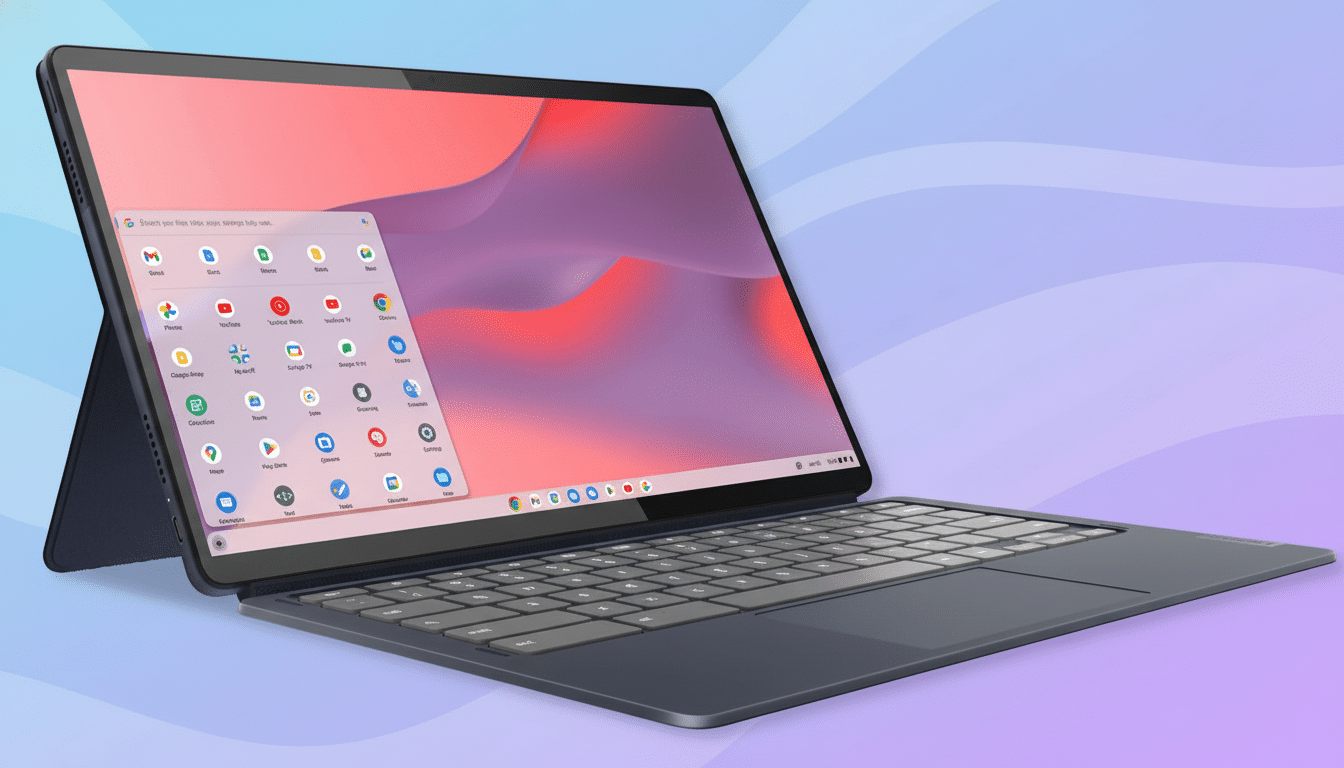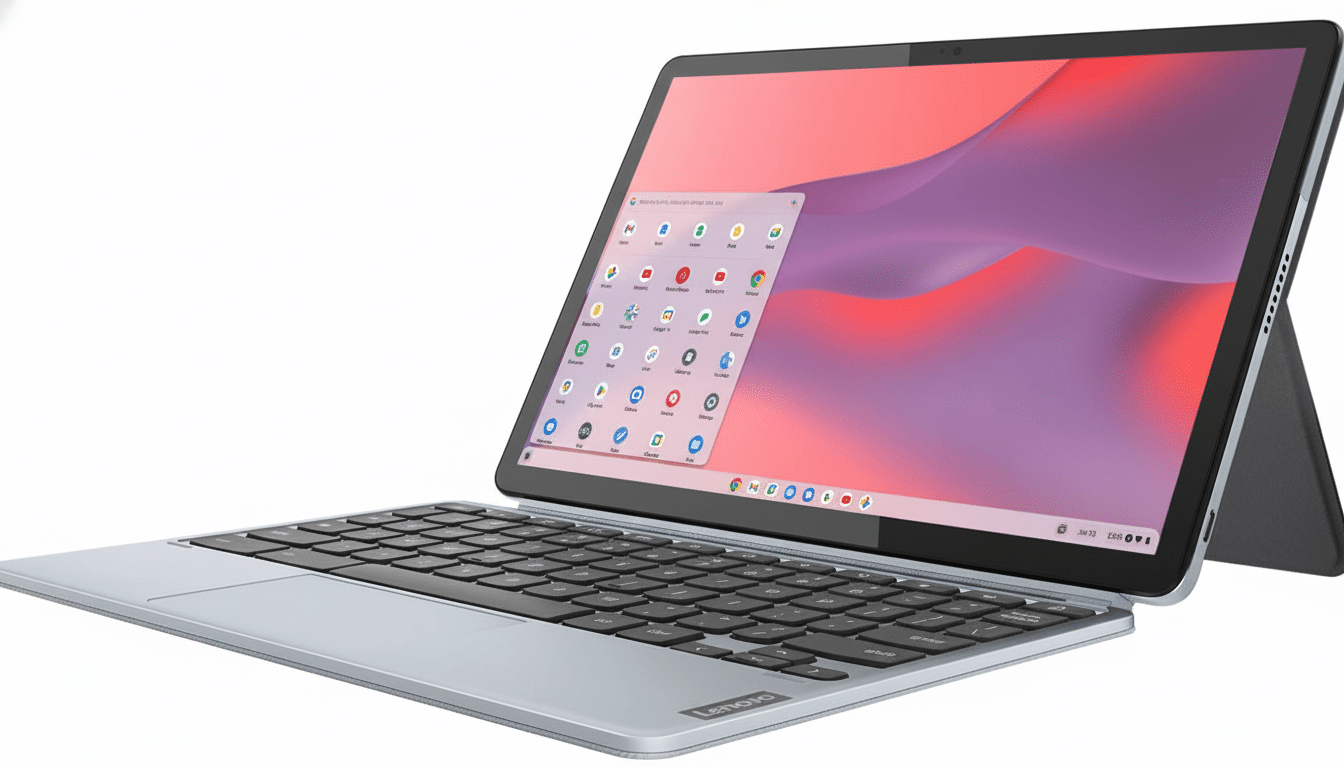A nearly unabashedly positive “sub-$200 laptop that does not suck” doesn’t come around a lot. And yet, here we are: The Lenovo Chromebook Duet, a detachable 2‑in‑1 with a keyboard included, has dropped to $199 — a low so low it transforms an already fine budget machine into an absolute no‑brainer of an everyday laptop. This is as close to the best laptop deal as we have now for students, light workers, and anyone comfortable living in the browser.
If you’re buying, the choice is easy: You get a tablet that snaps into a full keyboard, an 11‑inch screen that’s clear and sharp, thin and light construction, and ChromeOS that’s fast despite minimalist hardware.
- Why This $200 Lenovo Chromebook Duet Is Special
- Hardware That Handles Your Day-to-Day Work Needs
- Battery Life You Can Count On All Day Long
- Better Than Most Windows Laptops for Under $300
- Small Trade-offs to Consider Before You Buy
- Smart Buying Tips to Know Before You Check Out
- The Bottom Line on a $199 Lenovo Chromebook Duet

At this price, the Duet complicates bake sale logic and beats up low‑end Windows notebooks while serving battery life and simplicity that those computers almost never match.
Why This $200 Lenovo Chromebook Duet Is Special
Price counts, but value counts more. The Duet’s beauty is in its versatility. It’s a reading‑and‑streaming tablet, an optional sketching notepad for the couch, and a connected PC when you need the keyboard (which attaches via magnets). Importantly, you don’t pay extra for the keyboard cover — something that is typically an added expense with detachables.
ChromeOS is optimized for quick performance on modest hardware. Even on systems equipped with 4 GB of RAM, core tasks are snappy because of reduced overhead and an optimized tab management system. For learners and office workers who live inside Google Workspace or Microsoft 365 on the web, performance is instant; it doesn’t feel like any compromises have been made.
Security is another dynamic that is more about common sense than it is the spec sheet. Verified Boot at startup; ChromeOS runs each tab and app in a sandbox to check for vulnerabilities. Google also provides up to 10 years of automatic updates on eligible Chromebook models, which means such devices have far more useful life ahead than most sub‑$300 laptops can hope to claim.
Hardware That Handles Your Day-to-Day Work Needs
The 11‑inch panel on the Duet is a sweet spot for portability and comfort, with text that’s sharp enough to read comfortably and color that makes videos — and even Google Docs — look better. It’s adequately bright for indoor work and airline windows, and the 16:10 aspect ratio gives you additional vertical space for reading and editing.
A powerful ARM‑based processor coolly handles your tasks — and runs silently so you can focus on what matters. Storage is often 64 or 128 GB, since ChromeOS leans heavily on the cloud, but Android apps, offline Docs, and some media make a case for the 128 GB option.

The connectivity is refreshingly modern for this price: two USB‑C ports that can be used for charging as well as plugging in peripherals, Wi‑Fi that shouldn’t choke on dense home and campus networks, and Bluetooth for headphones and mice. Interchangeable between tablet and laptop modes, pogo pins and a protective cover with a kickstand make the transition quick.
Battery Life You Can Count On All Day Long
Budget laptops tend to over‑promise and under‑deliver on battery life. The Duet is the exception. Real‑world use typically falls in the 10–12‑hour range — streaming videos, writing for hours a day, and with dozens of browser tabs open — thanks to ChromeOS’ power management and the chipset’s efficiency. That’s a day of classes or meetings without trolling for an outlet.
Better Than Most Windows Laptops for Under $300
At the sub‑$300 level, many Windows machines settle for low‑end processors combined with sluggish eMMC storage and bloated software overhead. The result is lots of stuttering and short battery life. Analysts who track the industry, including those at IDC, have observed that this is why Chromebooks remain on top in education and entry‑point markets: they feel faster and are less of a maintenance hassle for the same price.
You’re also getting a better display and much less weight. Detachables such as the Duet tend to weigh in at around two pounds, keyboard included — as opposed to about three to four pounds for cheap Windows clamshells. When you have a long daily commute or lug a backpack around all day, that difference isn’t insignificant.
Small Trade-offs to Consider Before You Buy
The small keyboard is usable but tight. If you have big hands or like marathon writing sessions, a Bluetooth keyboard and mouse make all the difference sitting at your desk. Heavy Android gaming or professional video editing isn’t what the Duet’s for, and 4 GB RAM models can feel stretched with dozens of complex web apps open. For those more demanding use cases, step up to more RAM or consider going with a higher‑tier Chromebook.
Then it’s time for another practical question: while cloud‑first workflows are easy on ChromeOS, if you install a lot of Android apps or keep media offline, consider the 128 GB variant instead. Extended storage: External USB‑C drives make for good overflow.
Smart Buying Tips to Know Before You Check Out
- Make sure the bundle includes both the keyboard and kickstand cover (some listings sell them separately).
- Consult the automatic update support window in the product specifications; Google’s 10‑year policy applies to any platform falling under this category, and a longer support time directly translates into a higher value.
- If at all possible, aim for the 128 GB storage model, and check return policies with retailers in case that tighter keyboard layout is a bad fit.
The Bottom Line on a $199 Lenovo Chromebook Duet
At $199, the Lenovo Chromebook Duet doesn’t just come close — it rewrites what an entry‑level laptop is: it’s supposed to be light, secure, updated for years, and genuinely pleasant to use. If your day is spent in the browser with a side of docs, video, and chat, this is the rare budget buy that feels like a long‑term win.

